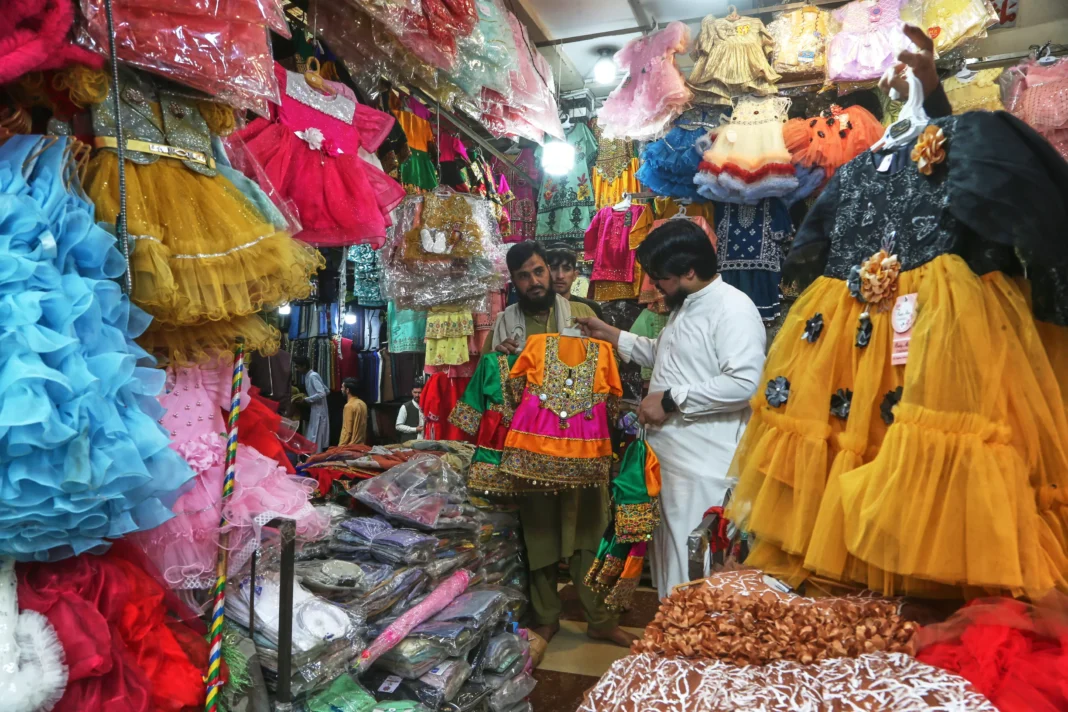Muslims around the world are marking the end of the holy month of Ramadan and gearing up to celebrate Eid al-Fitr, a time of joy, love, and gratitude. After a month of fasting, prayer, and spiritual reflection, Muslims are bidding farewell to Ramadan with a heart full of piety and a renewed sense of faith.
Ramadan, the ninth month of the Islamic calendar, is a time of immense spiritual significance for Muslims. It is a time of self-reflection, self-discipline, and self-control. During this month, Muslims refrain from food and drink from sunrise to sunset and engage in acts of worship, such as prayer, reading the Quran, and giving charity. Through these practices, Muslims not only strengthen their relationship with God but also cultivate empathy and compassion towards those less fortunate.
As the crescent moon is sighted, signaling the end of Ramadan, the excitement for Eid al-Fitr begins to build up. Eid al-Fitr, also known as the “Festival of Breaking the Fast,” marks the end of the month-long fasting period. It is a time for Muslims to gather with family, friends, and loved ones, exchange gifts, and share delicious meals. The joyous occasion also brings with it a sense of community, as Muslims from different backgrounds come together to celebrate and pray in congregation.
One of the most significant aspects of Eid al-Fitr is the special morning prayer, also known as Salat al-Eid. It is a unique prayer that marks the beginning of Eid festivities. After the prayer, Muslims exchange greetings of “Eid Mubarak,” which means “blessed Eid.” The day is then spent in joyful celebrations, with delicious food and traditional sweets being prepared and shared among family and friends.
The significance of Eid al-Fitr goes beyond the celebrations and feasting. It is a time for Muslims to reflect on the spiritual lessons and values they have gained during Ramadan and carry them forward throughout the year. It is also a time for forgiveness and reconciliation, as Muslims seek to repair broken relationships and spread love and peace within their communities.
Eid al-Fitr is a global celebration, with Muslims around the world participating in the festivities. However, the ongoing COVID-19 pandemic has brought about changes in the way Eid will be celebrated this year. As countries continue to battle the pandemic, Muslims are urged to prioritize safety and follow guidelines set by their respective governments and religious authorities. This includes avoiding large gatherings and maintaining social distancing.
Despite the challenges brought about by the pandemic, Muslims remain resilient and determined to make the best of this blessed occasion. Many have found creative ways to celebrate Eid, such as virtual gatherings and drive-thru Eid events. These adaptations reflect the spirit of unity and perseverance within the Muslim community.
Furthermore, Eid al-Fitr also holds a special place in the hearts of non-Muslims, as they join in the celebrations with their Muslim friends and neighbors. This serves as a reminder of the importance of inclusivity and diversity, as people of different faiths and cultures come together in the spirit of unity and harmony.
In conclusion, as Muslims bid farewell to the holy month of Ramadan and prepare to celebrate Eid al-Fitr, the message it brings remains timeless and relevant. It is a time of gratitude for the blessings received, reflection on the spiritual journey undertaken, and a renewed commitment to living a life of piety and love. Let us embrace the spirit of Eid al-Fitr with open hearts and continue to spread positivity and kindness in the world around us. Eid Mubarak to all!



